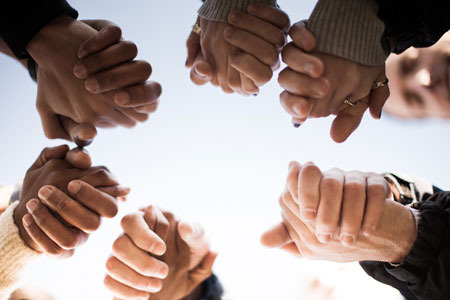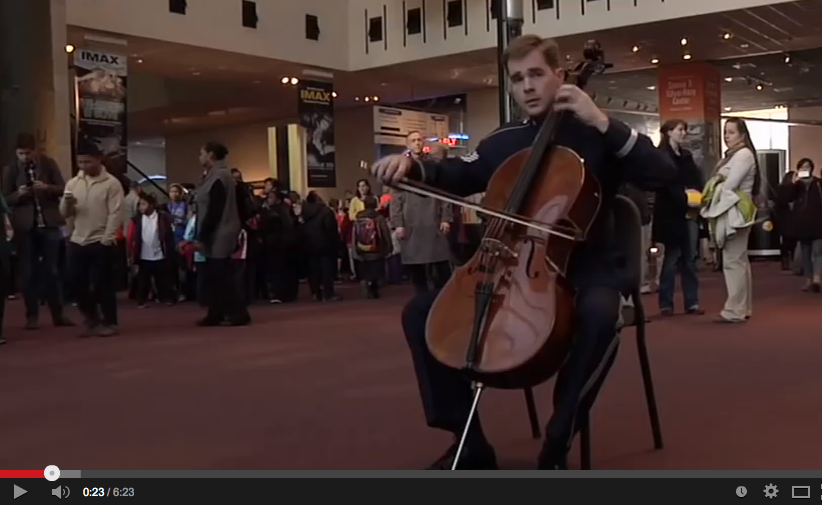 Responding to two police shootings, the murder of five police officers in Dallas, and cumulating images of unraveling, Middlebury College poet Jay Parini wrote an opinion piece on CNN.com. Part of it seems worth quoting:
Responding to two police shootings, the murder of five police officers in Dallas, and cumulating images of unraveling, Middlebury College poet Jay Parini wrote an opinion piece on CNN.com. Part of it seems worth quoting:
So now we have it, that dreadful thing: Americans at war with each other on many fronts. Not surprisingly, this conflict inhabits our political rhetoric, which has become increasingly debased, even childish.
We quickly blame the other guy: the Mexican or Wall Streeter, the immigrant, Muslims, 'millionaires and billionaires.' In our confusion and malaise, we have become a deeply angry nation. As such, we reach for scapegoats, and they're easy to find. Anyone who doesn't look or sound like ourselves becomes suspicious.
All we know is that we're hurting, and we desperately want two things: someone to blame, and someone to lead us to the Promised Land.
We've indeed reached what amounts to a spiritual crisis in America, and I use that term in the broadest sense. We can't love our neighbors because we can't see or really hear them. We 'other' them easily, and divide ourselves in dozens of ways: Republicans and Democrats, blacks, browns and whites, North and South.
We have a dizzying array of sects, with churches on every street corner, but these churches often feel no connection to people in other churches or those -- perhaps the majority -- with no religious affiliation at all. The splintering goes on and on.[i]
I think Parini is right in his diagnosis, and in his naming of the crisis as spiritual as well as political. I worry that he may be right, too, in his comment on the church.
Last week a small group of us at Pinnacle were in conversation with Dr. Allen Hilton about a new ministry he is developing. He's calling it "House United Ministries," dedicated to bringing people into creative, Spirit-led, dialogue. Many at Pinnacle remember Allen from when he preached in our pulpit a couple of years ago. He preached about the Christian call to unity in the face of differing views on important things. He asked us if the church might have a strong and unique call now to be a light in the midst of dividing darkness, to be a reconciling presence in a argumentative world, to be a place where left, right, and passions off the spectrum can talk together—even about important things. That sermon was one of just three non-retirement sermons that have been applauded in the past few years (note that applauding sermons should never become a habit!). The other two were about pretty much the same thing. One of those touched on unity in the face of strong opinions on sexuality and marriage. The other was about Jesus' call to us to love our enemies.
The call to this kind of difficult, even arduous, love may be more urgent than ever. To find ways of talking about things that matter, even when difficult, without hurting each other. To ground our dialogue in a larger story of compassion, justice, and transformation in God's love that makes more sense than our individual opinions. To learn to trust, even when we also call people to high standards, advocate for our understanding of Christian values, and confess our own shortcomings. To have a real and lively discussion of what those Christian values are, and to make faithful decisions even while we disagree. And to do all of this humbly, refusing stark contrasts and learning again the art of measure, qualification, and careful use of language. That might be the call.
So enough of uninformed conclusions. Enough of accusations. Enough of forgetting that life can be complicated, history can be many layered, others can have perspectives we do not understand or have never imagined, and that intelligent Christian education can be a redemptive gift to the world. Time to embrace all those ideas again. That may be our call, in this time, in this place, to the next while.
In the 1930s, in the face of the rising extremism in Europe, a Jesus sympathizing Jewish thinker named Simone Weil wrote an essay she called, "The Power of Words." In it, she gave words that we might take to heart even today. They, too, seem fitting to remember, and quote again. She wrote this:
In every sphere, we seem to have lost the very elements of intelligence: the ideas of limit, measure, degree, proportion, relation, comparison, contingency, interdependence, interrelation of means and ends. . . . Our lives are lived, in actual fact, among changing, varying realities, subject to the casual play of external necessities, and modifying themselves according to specific conditions within specific limits; and yet we act and strive and sacrifice ourselves and others by reference to fixed and isolated abstractions which cannot possibly be related either to one another or to any concrete facts. In this so-called age of technicians, the only battles we know how to fight are battles against windmills.[ii]
Let's let the church reveal another possibility. Let's stop battling windmills and remember the cross. As we do, let's respect the crosses others bear, and honor the one we claim. And from there let's let conversation begin and resurrection be spied.
[i] http://www.cnn.com/2016/07/08/opinions/dallas-police-shootings-america-anger-parini/index.html
[ii] “The Power of Words,” in Simone Weil, An Anthology, ed. Sian Miles (New York: Weidenfeild and Nicolson, 1986): 222, 223.
Save
 Remember when plane trips included conversations with strangers (at least if you got on alone)? You never knew what being hurled through the sky in a tin tube might bring out in people. But then came computers, and earphones, and video screens—to leave us each in our own worlds. Privacy gained. But something lost.
Remember when plane trips included conversations with strangers (at least if you got on alone)? You never knew what being hurled through the sky in a tin tube might bring out in people. But then came computers, and earphones, and video screens—to leave us each in our own worlds. Privacy gained. But something lost.











